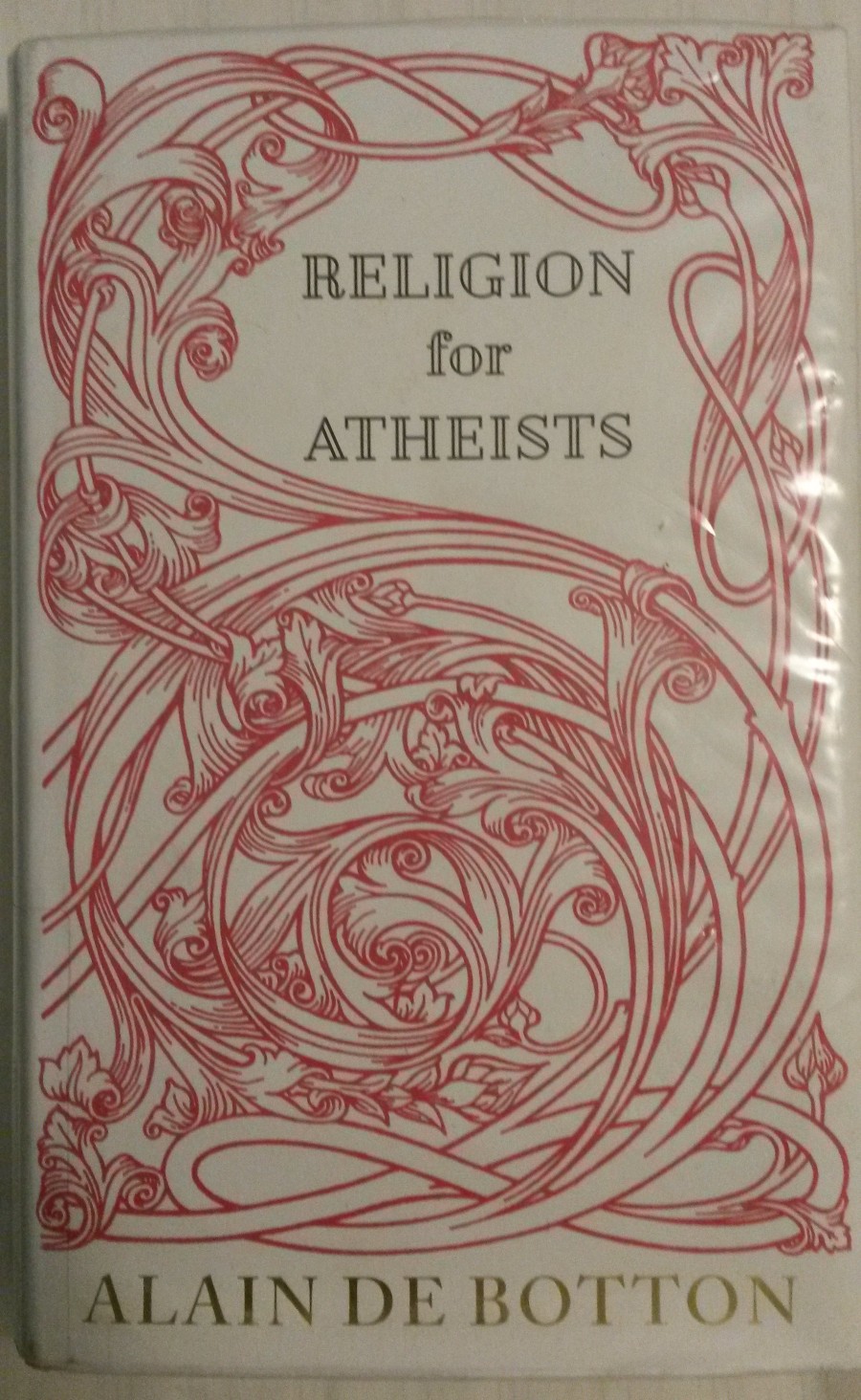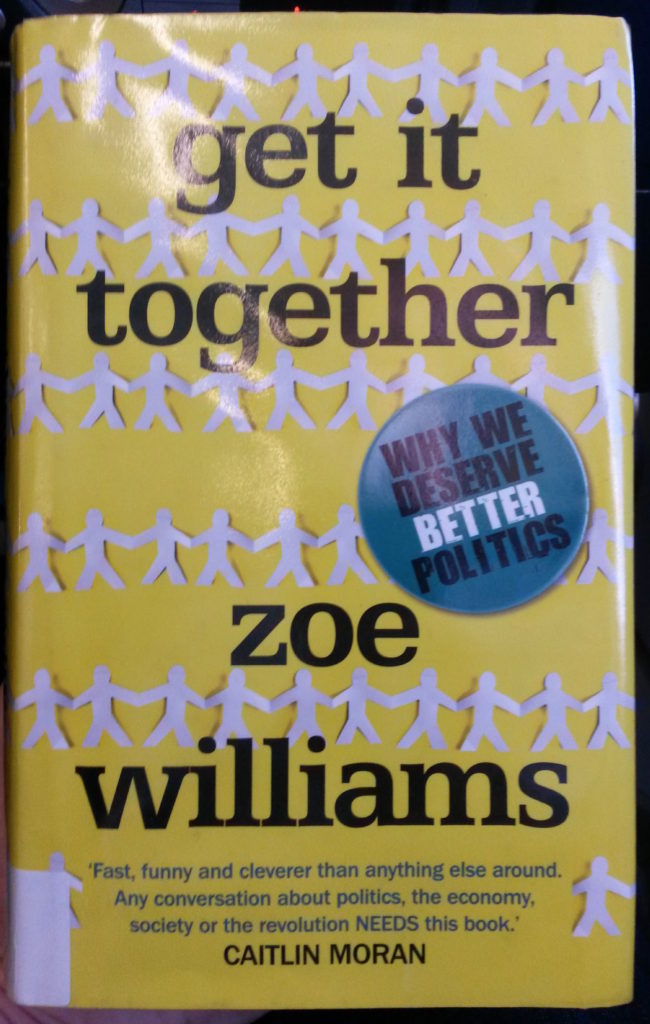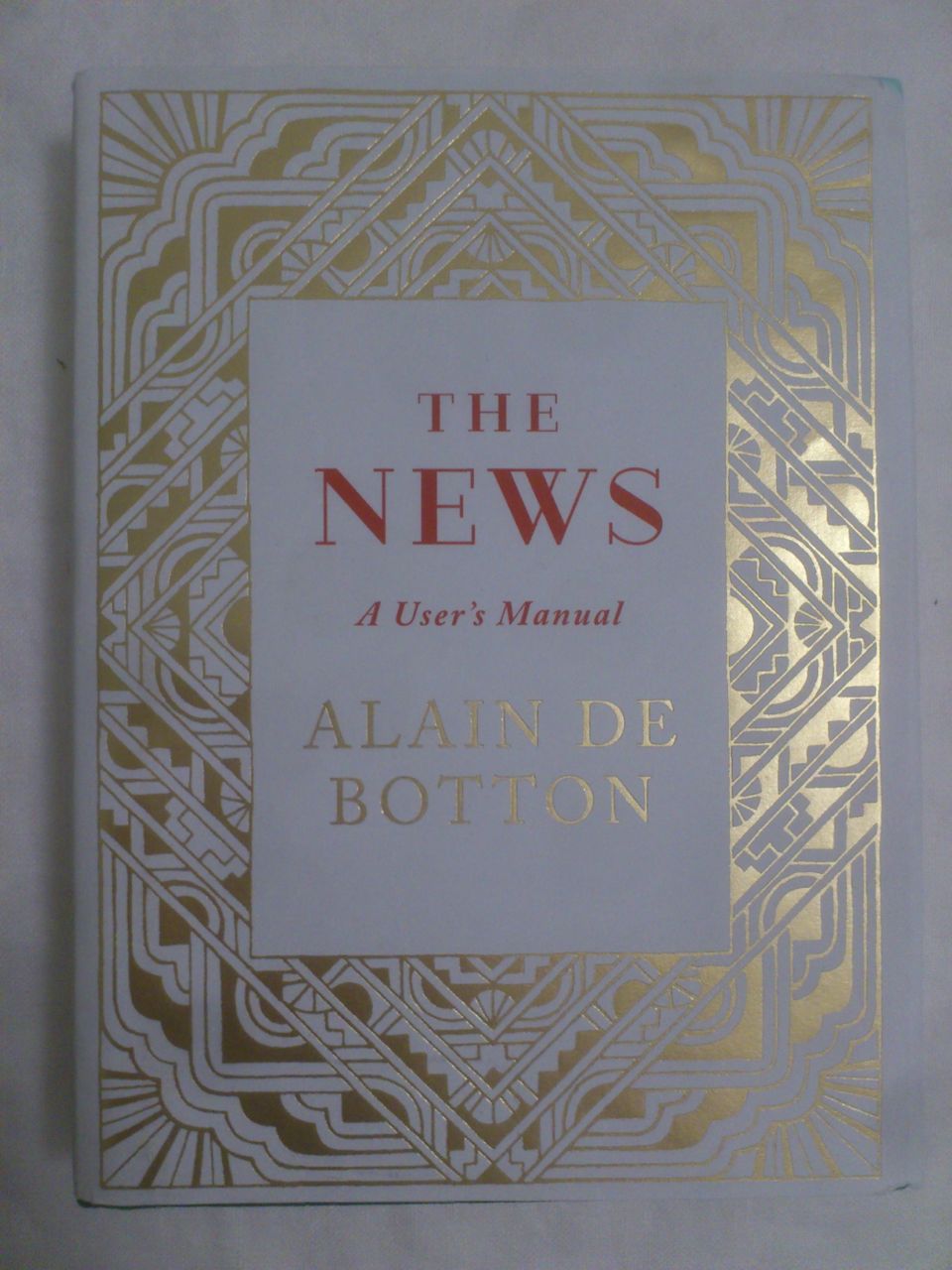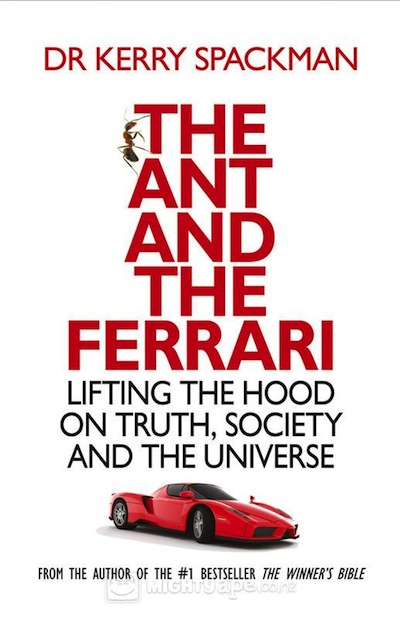 Most religions make metaphysical claims that are hard to believe, if they make any sense at all. But even if you don’t believe that the world rests on an elephant standing on turtles, or that omnipotent beings scrutinise our every move, religious traditions have a lot of ideas worth keeping. Religions place great importance on things like community and ritual, acknowledging our needs and our foibles too. This is what de Botton points out in this book.
Most religions make metaphysical claims that are hard to believe, if they make any sense at all. But even if you don’t believe that the world rests on an elephant standing on turtles, or that omnipotent beings scrutinise our every move, religious traditions have a lot of ideas worth keeping. Religions place great importance on things like community and ritual, acknowledging our needs and our foibles too. This is what de Botton points out in this book.
I have long thought that some sort of secular church might be a good idea: a place to go to every week with a bunch of other people, hear a sermon, chat, and just be part of a varied community. There are such places — pubs, sports events — but they’re not as inclusive as a church would be. Religion for Atheists has a few proposals along these lines. Like his book The News, these suggestions would reorganise society in a way that he thinks would improve our lives. I agree.
 I love this book. It’s a heartfelt, clear-eyed, inspiring clarion call for everyone to get together to make the world more livable. Her ideas are all so practical and achievable that I actually feel hopeful that they could really happen.
I love this book. It’s a heartfelt, clear-eyed, inspiring clarion call for everyone to get together to make the world more livable. Her ideas are all so practical and achievable that I actually feel hopeful that they could really happen. Historian Ian Morris argues that in the evolution of human culture, changes in ethical values have been driven by energy. He thinks that in any given epoch, the dominant energy source sets limits on the kinds of societies that can succeed, and each society in turn rewards specific values.
Historian Ian Morris argues that in the evolution of human culture, changes in ethical values have been driven by energy. He thinks that in any given epoch, the dominant energy source sets limits on the kinds of societies that can succeed, and each society in turn rewards specific values. Most religions make metaphysical claims that are hard to believe, if they make any sense at all. But even if you don’t believe that the world rests on an elephant standing on turtles, or that omnipotent beings scrutinise our every move, religious traditions have a lot of ideas worth keeping. Religions place great importance on things like community and ritual, acknowledging our needs and our foibles too. This is what de Botton points out in this book.
Most religions make metaphysical claims that are hard to believe, if they make any sense at all. But even if you don’t believe that the world rests on an elephant standing on turtles, or that omnipotent beings scrutinise our every move, religious traditions have a lot of ideas worth keeping. Religions place great importance on things like community and ritual, acknowledging our needs and our foibles too. This is what de Botton points out in this book. A thoughtful analysis of what is wrong with the mass media and how to put it right. It goes far beyond obvious ideas like reducing the bias towards bad news. I could see some of his ideas gaining traction, in the print media at least. It seems less likely on TV — maybe in a public broadcaster. If that happened I might occasionally watch TV.
A thoughtful analysis of what is wrong with the mass media and how to put it right. It goes far beyond obvious ideas like reducing the bias towards bad news. I could see some of his ideas gaining traction, in the print media at least. It seems less likely on TV — maybe in a public broadcaster. If that happened I might occasionally watch TV.